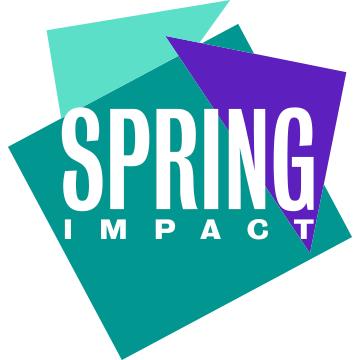Childhood sexual violence is a distressing global issue, affecting an alarming number of children, with UNICEF estimating that 1 in 5 children falls victim before they reach adulthood. The associated stigma, shame, and general lack of knowledge about what qualifies as childhood sexual violence makes it difficult for young people to recognise and report, further contributing to the pervasiveness of the problem.
Fortunately however, amidst these statistics, the efforts of impactful organisations around the world offer hope and show us that the issue is preventable. And importantly, that eradicating childhood sexual violence is possible.
Many nonprofit organisations have effective solutions which are consistently making great strides against this issue, and are crucial to combating it. They are armed with the knowledge and interventions needed to prevent childhood sexual violence before it happens. However, the complexities of expanding the reach and impact of effective solutions, coupled with limited resources and significant demands, can pose justifiable challenges to embarking on a journey to scaling up.
We find organisations asking themselves a number of questions. How do we balance reaching more people or working in new locations with maintaining high quality delivery? How do we scale in a way that is financially and operationally sustainable? How can we create change at a national or systemic level to truly influence the problem? And how can we make sure this is a successful investment of our capacity and resources?
Scale Accelerator: Preventing Childhood Sexual Violence has been developed to help organisations and their leaders answer these questions, and navigate the challenges of scaling up successfully. Made possible thanks to Oak Foundation, the programme offers fully funded consultancy to help ambitious organisations who are working to prevent childhood sexual abuse and exploitation across the EU and the UK.
By joining this programme, organisations will be supported to scale up their work and improve financial sustainability, so they can advance on the mission of eradicating childhood sexual abuse.
In this article, we outline some of the key approaches organisations will be guided through:
1. Prioritising Impact over Organisational Growth:
It is common for organisations to think that growing their organisation and expanding their team is the primary way to create a greater impact. However, at Spring, we believe true impact is achieved by focussing on the societal problem you are trying to solve, in this case ending childhood sexual violence.
When we understand our scaling goal as growth alone, we tend to prioritise working on the wrong things. Maybe jumping on funding opportunities even if they’re not strategically aligned or prioritising approaches that will quickly reach many people but not achieve impact.
But when we’re laser-focused on solving the societal problem, we are more likely to be adaptable to make decisions that better meet the needs of those experiencing the problem, and prioritise impact. We’re able to understand how the solution fits in the wider sector ecosystem and what the unique contribution of our organisation is.
This enables organisations to think strategically about the essential ‘ingredients’ that make a difference to those they are supporting (or to their cause) in order to only invest in scaling up what works. It also ensures organisations can make deliberate decisions about their own role and the role of other stakeholders in delivering these ingredients at scale.
2. Ensuring financial sustainability at scale
Fundraising to expand a team or take your solution to new locations is a common approach to creating greater impact, and more often than not – a necessary one. But, this might not always be a sustainable pathway in the long term. A solution that is solely reliant on grant funding at a small scale will face even more challenges as it expands.
A plan for financial sustainability is key when scaling up. Organisations need to consider alternative revenue sources as they embark on the journey. Can delivery partners, end-users, local authorities/municipalities or others share the financial burden? Can you empower existing organisations to deliver on your behalf in new locations through training and collaboration?
By thinking creatively about your financial model, you can ensure the sustainability of your mission, going beyond grant funding and allowing it to thrive as you scale.
3. Embracing real-world testing and experimentation
We know it’s important to plan. But, impact at scale is only possible when your solution, scale strategy and approach is validated through real-world testing.
Scaling journeys begin with a lot of uncertainties and assumptions, which make us fearful of going out into the world. However, the real risk lies in not learning what parts of our scaling plans are not working until it’s too late.
Organisations can mitigate the risks of pursuing a plan that might not be successful by adopting a culture of continuous testing, learning, and adaptation. This can be done by identifying uncertain aspects within your solution, strategy, or scale model, and then moving on to gathering practical data through experiments, small-scale pilots, and other empirical sources. It’s a lean approach that can inform organisations’ strategies, minimise resource wastage and maximise chances of success at scale.
If you think your organisation is ready to embark on your scaling journey towards creating a brighter future for children, check your eligibility via our quiz. If you are eligible, the deadline to apply for the programme is September 25th. If you are looking for further information about the programme, you can email us at [email protected].

